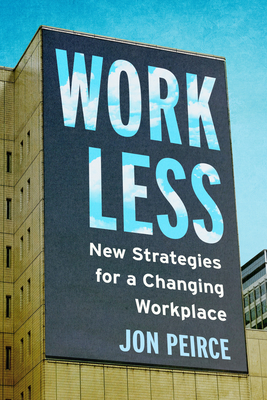
description
y of the battle for shorter hours ... and why now is finally the moment for a breakthrough that would give us all more of the precious gift of time." -- LINDA McQUAIG, journalist and author
You can't have a healthy economy with an unhealthy work force. Work Less proposes ways to reduce work hours and keep workers happier, healthier, and more productive.
Recent years have revealed just how stressed out many workers are. While the trend to longer hours has been developing for several decades, the trend's effects have been aggravated during the pandemic by the growing use of Zoom and other new technologies for meetings with clients, customers, and co-workers.
Exhausted and fed up, today's workers are starting to insist on shorter hours and greater flexibility as to where they do their work. There is growing consensus that the forty-hour week, the norm since the 1940s, has outlived its usefulness. And there is an urgent need for new work schedules that adequately reflect the far greater intensity of work today, as well as the greater family demands on a labour force made up of almost fifty percent women, who bear the brunt of domestic duties.
Work Less offers practical scheduling suggestions to employers and workers and numerous policy options for government policy-makers to improve working conditions.
You can't have a healthy economy with an unhealthy work force. Work Less proposes ways to reduce work hours and keep workers happier, healthier, and more productive.
Recent years have revealed just how stressed out many workers are. While the trend to longer hours has been developing for several decades, the trend's effects have been aggravated during the pandemic by the growing use of Zoom and other new technologies for meetings with clients, customers, and co-workers.
Exhausted and fed up, today's workers are starting to insist on shorter hours and greater flexibility as to where they do their work. There is growing consensus that the forty-hour week, the norm since the 1940s, has outlived its usefulness. And there is an urgent need for new work schedules that adequately reflect the far greater intensity of work today, as well as the greater family demands on a labour force made up of almost fifty percent women, who bear the brunt of domestic duties.
Work Less offers practical scheduling suggestions to employers and workers and numerous policy options for government policy-makers to improve working conditions.
member goods
No member items were found under this heading.
Return Policy
All sales are final
Shipping
No special shipping considerations available.
Shipping fees determined at checkout.







